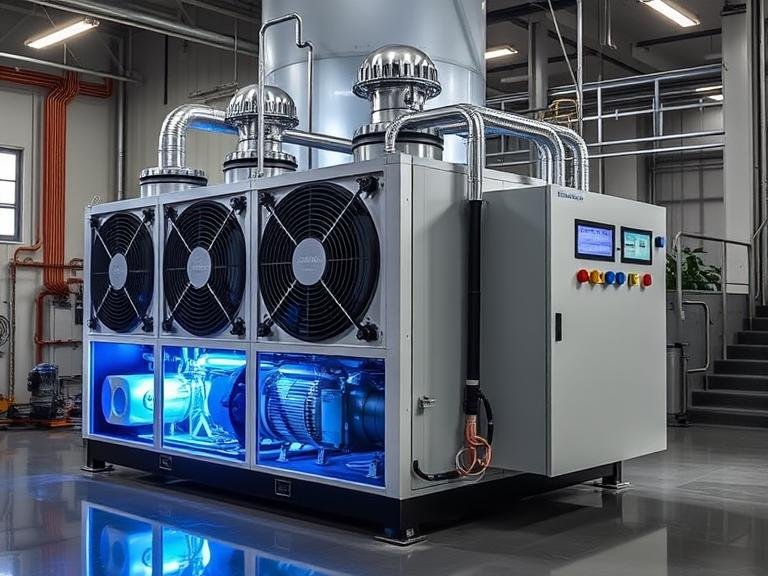
Why Vapor Absorption Chillers Are the Future of Cooling
Introduction to Vapor Absorption Chillers:
Vapor absorption chillers are emerging as a superior alternative to traditional cooling systems due to their ability to utilize heat energy instead of electricity. By leveraging heat sources such as steam, hot water, or direct-fired burners, these chillers provide an energy-efficient and eco-friendly cooling solution for various industries. With growing concerns about energy consumption and environmental impact, vapor absorption chillers are gaining popularity worldwide.
Related Links: Chiller Solutions | CCHP Systems | About BROAD India | Contact Us | BROAD International
How Vapor Absorption Chillers Work:
The operation of a vapor absorption chiller is based on the absorption refrigeration cycle, which uses a refrigerant-absorbent pair such as water and lithium bromide. The process consists of four main stages—evaporation, absorption, regeneration, and condensation. Unlike conventional chillers that use a mechanical compressor, these chillers rely on thermal energy to drive the refrigeration process, significantly reducing electricity consumption.
Key Benefits of Vapor Absorption Chillers:
- - Operates with waste heat, increasing overall plant efficiency
- - Uses natural refrigerants, no CFCs or HCFCs
- - Lower maintenance due to fewer moving parts
- - Ideal for long-term sustainability goals
Industries That Benefit from Absorption Cooling:
Vapor absorption chillers are widely used in industries such as power plants, chemical processing, and large commercial buildings. They are particularly beneficial in facilities where waste heat is available from cogeneration plants or industrial processes. Additionally, they are used in solar cooling systems and district cooling plants to provide sustainable and cost-effective air conditioning.
Challenges and Cost Considerations:
While vapor absorption chillers offer many benefits, they require a consistent and stable heat source for optimal performance. The initial investment may be higher than conventional cooling systems, but the long-term energy savings and operational efficiency make them a worthwhile investment. Proper system integration and routine maintenance are essential for maximizing their performance and longevity.
Conclusion:
Vapor absorption chillers are transforming the cooling industry by offering a sustainable and energy-efficient alternative to traditional mechanical chillers. Their ability to utilize waste heat, reduce electricity consumption, and minimize environmental impact makes them an excellent choice for industries seeking long-term cost savings and sustainability.
